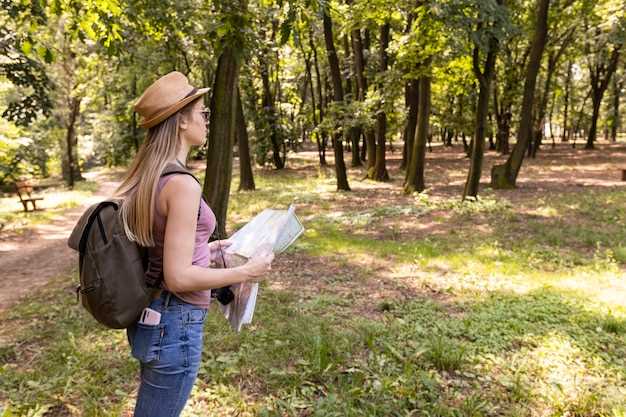Eco-Tourism Responsible Travel Practices for Sustainable Adventures

Embarking on a journey that not only satisfies our wanderlust but also contributes to the preservation of our planet has become an increasingly popular choice for modern-day adventurers. In a world where environmental consciousness is on the rise, eco-tourism has emerged as a beacon of hope, offering responsible travel practices that allow us to explore the wonders of nature while minimizing our ecological footprint.
By embracing the principles of sustainable travel, we can immerse ourselves in breathtaking landscapes, diverse cultures, and unique experiences, all while ensuring the long-term well-being of the destinations we visit. This form of travel goes beyond mere sightseeing; it encourages us to become active participants in the conservation and protection of our planet’s natural resources.
With a focus on preserving biodiversity, supporting local communities, and promoting cultural understanding, eco-tourism offers a holistic approach to travel. It encourages us to tread lightly, leaving behind nothing but footprints and taking away memories that will last a lifetime. By choosing ethical adventures, we can make a positive impact on the environment and the lives of those who call these destinations home.
Eco-Tourism: Ethical Travel Approaches for Sustainable Explorations
Embarking on a journey that harmonizes with nature and supports local communities is a fundamental aspect of eco-tourism. By adopting responsible travel practices, adventurers can ensure their explorations have a positive impact on the environment and the people they encounter along the way.
Engaging in eco-tourism entails embracing a mindful approach to travel, where individuals strive to minimize their ecological footprint and maximize the benefits for local economies. This involves making conscious choices that prioritize the preservation of natural resources, cultural heritage, and the well-being of local communities.
One key aspect of eco-tourism is the promotion of sustainable transportation methods. Opting for low-impact modes of travel, such as cycling, hiking, or using public transportation, not only reduces carbon emissions but also allows travelers to immerse themselves in the surrounding environment, fostering a deeper connection with nature.
Another crucial element of responsible travel is supporting local businesses and communities. By choosing to stay in locally-owned accommodations, dining at local restaurants, and purchasing souvenirs from local artisans, travelers contribute directly to the economic development of the destination. This not only helps to preserve local traditions and cultures but also ensures that the benefits of tourism are distributed more equitably among the local population.
Furthermore, eco-tourism encourages travelers to engage in activities that promote environmental conservation and protection. Participating in wildlife conservation projects, volunteering for beach clean-ups, or joining educational programs on sustainable farming are just a few examples of how adventurers can actively contribute to the preservation of natural habitats and biodiversity.
In conclusion, eco-tourism offers a unique opportunity for individuals to embark on sustainable adventures that respect the environment and benefit local communities. By adopting responsible travel practices, adventurers can create meaningful connections with nature, support local economies, and contribute to the long-term preservation of our planet’s natural and cultural treasures.
Understanding Eco-Tourism: A Guide to Responsible Travel
Embarking on a journey that harmonizes with nature and supports local communities is a transformative experience. This section aims to provide a comprehensive understanding of eco-tourism, offering insights into responsible travel practices that promote sustainability and preserve the natural wonders of our planet.
Exploring Nature’s Bounty Responsibly
When venturing into the great outdoors, it is crucial to adopt a mindful approach that respects the delicate balance of ecosystems. By embracing sustainable practices such as leaving no trace, minimizing waste, and supporting local conservation efforts, eco-travelers can ensure that their adventures have a positive impact on the environment.
Empowering Local Communities
Eco-tourism goes beyond appreciating nature; it also involves engaging with and supporting local communities. By choosing responsible travel options that prioritize community involvement, travelers can contribute to the economic growth and cultural preservation of the destinations they visit. This can be achieved through activities such as staying in locally-owned accommodations, purchasing locally-made products, and participating in community-led initiatives.
By understanding the essence of eco-tourism and embracing responsible travel practices, adventurers can embark on journeys that not only provide unforgettable experiences but also contribute to the preservation of our planet’s natural and cultural heritage. Let this guide be your compass as you embark on a sustainable adventure that leaves a positive footprint on the world.
Preserving Natural Resources: How Eco-Tourism Helps Protect the Environment
Exploring the wonders of nature while ensuring its preservation is a key aspect of sustainable travel. By engaging in eco-tourism practices, travelers can actively contribute to the protection of natural resources and the environment. This section will delve into the various ways in which eco-tourism helps safeguard the delicate balance of our planet.
One of the primary ways eco-tourism aids in preserving natural resources is through promoting responsible consumption. Instead of exploiting resources for short-term gains, eco-tourism encourages travelers to adopt sustainable practices that minimize their impact on the environment. This includes using renewable energy sources, conserving water, and reducing waste generation. By embracing these practices, eco-tourists play a vital role in preserving the natural beauty and resources of the destinations they visit.
Furthermore, eco-tourism fosters a deeper understanding and appreciation for the environment. Through educational programs and guided tours, travelers gain insights into the ecological significance of the places they explore. This knowledge empowers them to make informed decisions and take actions that contribute to the conservation of natural resources. By raising awareness and promoting environmental stewardship, eco-tourism helps protect fragile ecosystems and ensures their long-term sustainability.
In addition, eco-tourism supports local communities and encourages sustainable development. By engaging with local businesses and communities, travelers contribute to the economic growth of the region in a responsible manner. This, in turn, reduces the pressure on natural resources by providing alternative livelihood opportunities that are less harmful to the environment. By supporting local initiatives and respecting indigenous cultures, eco-tourists actively participate in the preservation of natural resources and the promotion of sustainable practices.
- Eco-tourism promotes responsible consumption and sustainable practices
- Educational programs and guided tours foster understanding and appreciation for the environment
- Eco-tourism supports local communities and encourages sustainable development
In conclusion, eco-tourism plays a crucial role in preserving natural resources and protecting the environment. By embracing responsible consumption, fostering environmental awareness, and supporting local communities, eco-tourists contribute to the long-term sustainability of our planet. Through these efforts, we can ensure that future generations can continue to enjoy the beauty and abundance of our natural world.
Supporting Local Communities: The Social Impact of Sustainable Travel
When embarking on sustainable adventures, it is important to recognize the significant social impact that eco-tourism can have on local communities. By engaging in responsible travel practices, travelers can contribute to the well-being and development of these communities, fostering positive change and creating a more sustainable future.
Empowering Local Economies
One of the key benefits of eco-tourism is its ability to support and empower local economies. By choosing to stay in locally-owned accommodations, eating at local restaurants, and purchasing goods and services from local vendors, travelers can directly contribute to the economic growth of the community. This not only provides financial stability for local businesses but also creates employment opportunities for residents, reducing poverty and promoting self-sufficiency.
Cultural Preservation and Appreciation

Eco-tourism encourages travelers to immerse themselves in the local culture and traditions, fostering a deeper understanding and appreciation for the community they are visiting. By engaging in cultural activities, such as participating in traditional ceremonies or supporting local artisans, travelers can help preserve and promote the unique heritage of the destination. This cultural exchange also allows for the sharing of knowledge and skills, creating a mutual learning experience that benefits both the visitors and the local community.
By supporting local communities through sustainable travel practices, travelers can make a positive social impact that extends beyond their own experiences. Through economic empowerment and cultural preservation, eco-tourism can contribute to the overall well-being and development of communities, creating a more sustainable and inclusive future for all.
Wildlife Conservation: Promoting Biodiversity through Sustainable Nature Exploration
Exploring the wonders of nature while actively contributing to the preservation of wildlife and the promotion of biodiversity is a key aspect of responsible and sustainable travel. By engaging in eco-friendly tourism practices, travelers can play a vital role in conserving the diverse ecosystems and species that inhabit our planet.
One of the primary goals of wildlife conservation through eco-tourism is to raise awareness about the importance of preserving natural habitats and protecting endangered species. Through educational initiatives and guided tours, travelers can gain a deeper understanding of the delicate balance of ecosystems and the threats they face. By witnessing the beauty and complexity of wildlife in their natural habitats, visitors can develop a sense of appreciation and responsibility towards the conservation of biodiversity.
Engaging in eco-tourism activities that support wildlife conservation also provides economic benefits to local communities. By promoting sustainable practices, such as responsible wildlife viewing and supporting conservation projects, eco-tourism contributes to the livelihoods of local residents. This economic incentive encourages communities to actively participate in the preservation of their natural resources and habitats, creating a mutually beneficial relationship between conservation efforts and local development.
- Participating in guided nature walks and wildlife safaris
- Supporting local conservation organizations and initiatives
- Choosing eco-friendly accommodations and tour operators
- Respecting wildlife habitats and maintaining a safe distance
- Learning about local flora and fauna through educational programs
By following these practices, travelers can minimize their impact on the environment and contribute to the long-term sustainability of wildlife conservation efforts. It is crucial to remember that responsible eco-tourism goes beyond simply observing wildlife; it involves actively supporting initiatives that protect and preserve the natural world for future generations.
Through wildlife conservation and the promotion of biodiversity, eco-tourism offers a unique opportunity for travelers to connect with nature, gain knowledge, and make a positive impact on the planet. By embracing sustainable travel practices, we can ensure the preservation of our natural heritage and create a harmonious relationship between humans and wildlife.
Sustainable Accommodation: Choosing Eco-Friendly Lodging Options
When embarking on a sustainable adventure, one crucial aspect to consider is the choice of accommodation. Opting for eco-friendly lodging options not only aligns with the principles of responsible travel, but also contributes to the preservation of the environment and local communities. By selecting sustainable accommodation, travelers can minimize their ecological footprint and support businesses that prioritize sustainability.
Choosing eco-friendly lodging options involves selecting accommodations that prioritize practices such as energy efficiency, waste reduction, water conservation, and the use of renewable resources. These establishments often employ innovative technologies and design principles to minimize their impact on the environment. Additionally, they may implement initiatives to support the local community, such as sourcing locally produced goods and providing employment opportunities for residents.
One popular choice for sustainable accommodation is eco-lodges. These establishments are typically located in natural settings, such as forests or coastal areas, and are designed to blend harmoniously with the surrounding environment. Eco-lodges often utilize renewable energy sources, such as solar or wind power, and employ sustainable building materials to minimize their carbon footprint. They also prioritize responsible waste management and encourage guests to participate in eco-friendly activities, such as nature conservation projects or cultural exchanges with local communities.
Another option for eco-conscious travelers is to stay in certified green hotels. These hotels have undergone rigorous assessments to ensure their adherence to sustainable practices. They may have implemented energy-efficient measures, such as LED lighting and motion sensors, to reduce electricity consumption. Green hotels also often have water-saving initiatives in place, such as low-flow showerheads and toilets, as well as recycling programs to minimize waste. By choosing a certified green hotel, travelers can have confidence that their accommodation choice aligns with their commitment to sustainability.
For those seeking a more immersive experience, homestays and farmstays offer a unique opportunity to connect with local communities and support sustainable living. Homestays involve staying with a local family in their home, while farmstays provide the chance to experience life on a working farm. These types of accommodations often provide insight into traditional practices and offer authentic cultural experiences. Additionally, they typically prioritize organic farming methods, use locally sourced ingredients for meals, and promote sustainable tourism practices.
In conclusion, when planning a sustainable adventure, it is essential to consider the choice of accommodation. By opting for eco-friendly lodging options such as eco-lodges, certified green hotels, homestays, or farmstays, travelers can actively contribute to the preservation of the environment and support local communities. Making conscious choices in accommodation selection is a significant step towards responsible and sustainable travel.
Responsible Adventure Activities: Enjoying Nature without Harming It
When engaging in outdoor adventures, it is crucial to ensure that our actions do not cause harm to the environment. By participating in responsible adventure activities, we can enjoy the beauty of nature while also preserving it for future generations.
One way to practice responsible adventure activities is by choosing eco-friendly transportation options. Instead of driving a car to the hiking trail, consider carpooling or using public transportation. This reduces carbon emissions and minimizes the impact on the surrounding ecosystem.
Another important aspect of responsible adventure activities is respecting wildlife and their habitats. When observing animals, it is essential to maintain a safe distance and avoid disturbing their natural behavior. This includes refraining from feeding or touching them, as it can disrupt their natural diet and behavior patterns.
Additionally, it is crucial to leave no trace when engaging in adventure activities. This means packing out all trash, including food scraps, and disposing of them properly. It is also important to stay on designated trails to prevent soil erosion and damage to fragile plant life.
Choosing sustainable gear and equipment is another way to practice responsible adventure activities. Opt for eco-friendly and durable products that have minimal impact on the environment. This includes using reusable water bottles, biodegradable sunscreen, and eco-friendly camping gear.
Lastly, responsible adventure activities involve supporting local communities and economies. When visiting natural areas, consider staying in locally-owned accommodations and purchasing goods and services from local businesses. This helps to promote sustainable tourism and ensures that the economic benefits of tourism are shared with the local community.
- Choose eco-friendly transportation options
- Respect wildlife and their habitats
- Leave no trace
- Use sustainable gear and equipment
- Support local communities and economies
By following these responsible adventure activities, we can enjoy the wonders of nature while also preserving and protecting it for future generations to come.


